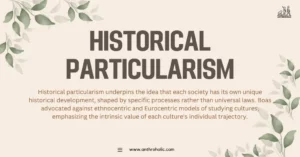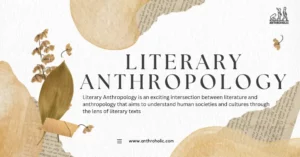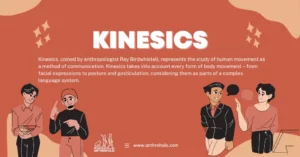AI Answer Evaluation Platform Live Now. Try Free Answer Evaluation Now
Tribes and Forest
Tribes and forests have shared a complex and interdependent relationship throughout human history. Anthropologists explore the connections between tribal communities and forest ecosystems, examining how tribes rely on forests for sustenance and cultural practice, and how they manage and conserve these valuable resources.

Tribal Connection with Forests: A Historical Perspective
Coexistence and Dependence
Tribal societies have historically thrived within forest environments, depending on them for food, shelter, and cultural practices [1]. The forest ecosystem has provided a rich resource base for many tribes across different geographical locations.
Table 1: Some Prominent Tribal Communities and Their Forest Dependencies
| Tribe | Region | Key Dependencies |
|---|---|---|
| Yanomami | Amazon Basin | Hunting, Medicine |
| Maasai | East Africa | Grazing, Water |
| Penan | Borneo | Hunting, Gathering |
Environmental Stewardship
Contrary to common misconceptions, many tribal communities have acted as stewards of the forest, utilizing sustainable practices that preserve and even enhance forest health [2]. Some tribes have developed intricate systems of forest management that reflect a profound understanding of ecology and biodiversity.
The Role of Forests in Tribal Culture
Ritual and Spiritual Significance
Forests often hold deep spiritual and cultural significance for tribal communities, being a place for rituals, storytelling, and connection with ancestors [3]. Sacred groves, specific trees, and forest landmarks may be integral to the tribe’s identity and cosmology.
Economic and Subsistence Roles
Forests provide essential resources for tribal economies, such as wood, medicinal plants, and food [4]. These resources are often gathered and used following traditional ecological knowledge, which ensures sustainable harvest and continuity of supply.
Challenges and Conflicts
Land Rights and Legal Frameworks
Land rights and legal frameworks governing forests often clash with traditional tribal territories and usage patterns [5]. Encroachments by governments or commercial entities can lead to conflicts and threaten the tribal way of life.
Climate Change and Environmental Threats
Climate change and deforestation are posing new challenges to both tribes and forests. The consequences of these environmental shifts are far-reaching and impact the traditional lifestyles of the tribal communities.
Anthropological Perspectives on Tribal-Forest Relationships
The Concept of Ethnoecology
Ethnoecology refers to the study of indigenous peoples’ relationships with their natural environments. It emphasizes understanding the unique ways in which tribes view and interact with forests, often presenting a holistic perspective that integrates spiritual, cultural, economic, and ecological dimensions.
Case Study: The Batek Tribe of Malaysia
The Batek Tribe in Malaysia provides an illustrative example of a deeply symbiotic relationship with the forest. Their nomadic lifestyle, hunting practices, and social structures are finely attuned to the forest ecosystem.
Table 2: Batek Tribe’s Forest Interactions
| Aspect | Description |
|---|---|
| Hunting | Utilization of sustainable hunting practices |
| Gathering | Harvesting of forest products without over-exploitation |
| Spirituality | Forests as sacred spaces |
| Social norms | Community rules that promote ecological conservation |
Modern Interventions and Tribal Forest Management
Government Policies and Tribal Autonomy
Various government interventions have sought to regulate or protect tribal-forest relationships. While some have aided conservation efforts, others have been criticized for undermining tribal autonomy and traditional ways of life.
Non-Governmental Organizations (NGOs) and Collaborative Efforts
NGOs have played a significant role in partnering with tribal communities to preserve forests and advocate for tribal rights. Collaborative initiatives have often proven successful in promoting sustainable development and preserving cultural heritage.
The Future of Tribes and Forests: Pathways and Considerations
The Importance of Integrating Traditional Knowledge
The integration of traditional knowledge into modern conservation strategies can offer valuable insights for sustainable forest management. Recognizing the wisdom and practices of tribal communities can enhance both ecological preservation and social justice.
Challenges Ahead: Urbanization and Globalization
Urbanization and globalization pose new challenges to the intricate balance between tribes and forests. The intrusion of modernity can threaten traditional lifestyles, leading to cultural erosion and ecological degradation.
Conclusion
The relationship between tribes and forests transcends mere utilitarian considerations. It is a multifaceted interaction that embodies cultural richness, ecological wisdom, and historical continuity. Understanding this relationship is essential for those working in anthropology, conservation, and social policy. Respect for tribal autonomy and wisdom, coupled with concerted efforts to address modern challenges, is vital for the future of both tribes and forests.
References
[1] Ingold, T. (2000). The Perception of the Environment: Essays on Livelihood, Dwelling and Skill. Routledge.
[2] Berkes, F. (2018). Sacred Ecology. Routledge.
[3] Posey, D.A. (1999). Cultural and Spiritual Values of Biodiversity. UNEP.
[4] Gadgil, M., & Guha, R. (1993). This Fissured Land: An Ecological History of India. Oxford University Press.
[5] Baviskar, A. (2007). In the Belly of the River: Tribal Conflicts over Development in the Narmada Valley. Oxford University Press.




